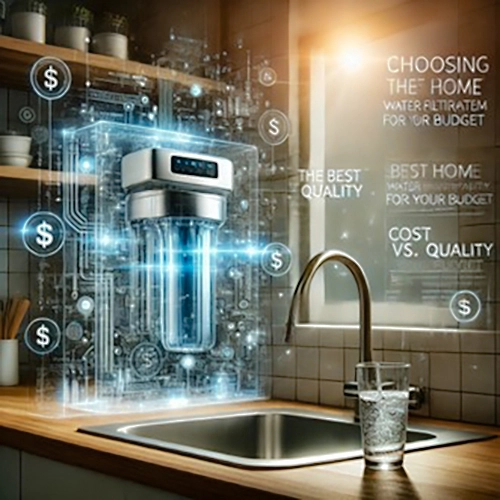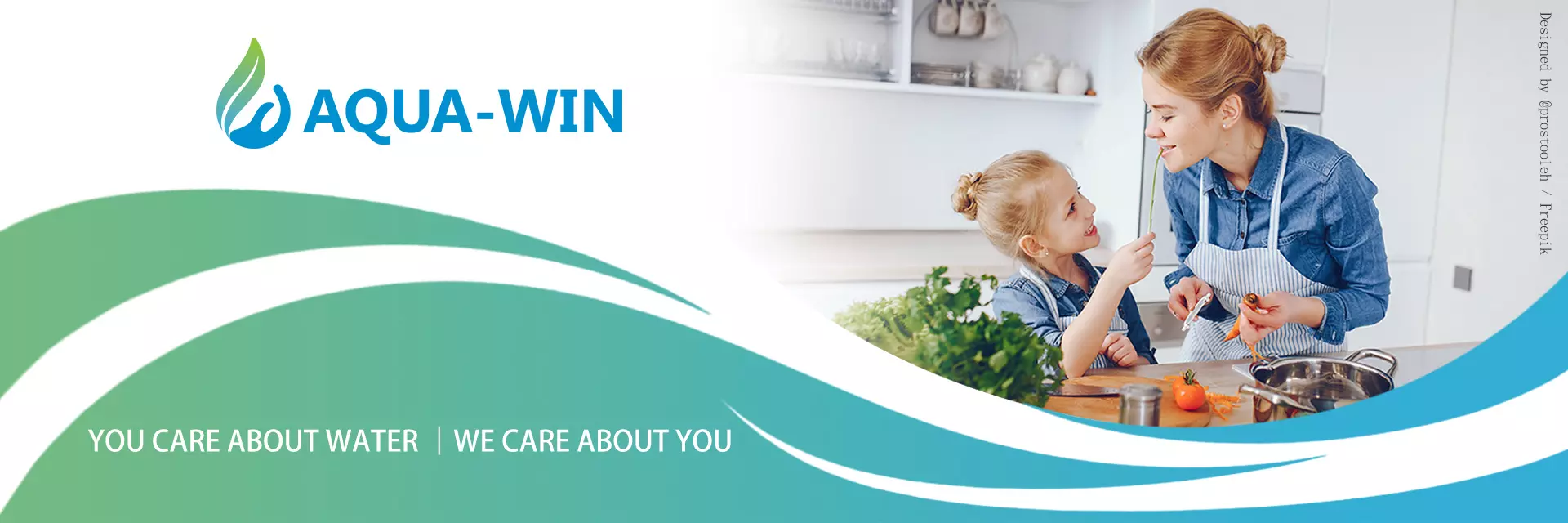FAQ-- Product Resources
Home Water Filtration System Cost: How to Choose the Best Option for Your Budget
Home Water Filtration System Cost: How to Choose the Best Option for Your Budget

Are you considering a water filtration system for your home? One of the first questions on your mind is likely, “How much will it cost?” The cost of a home water filtration system can vary widely depending on your needs. Some basic filters can be as low as $25, while more comprehensive systems may cost over $3,000. The final price depends on several factors, including the system’s filtration method, technology, capacity, installation, and the cost of replacement filters.
In this guide, we’ll break down the costs and help you find the right home water filtration system for your budget and water quality goals.
Determining the Cost of Water Filtration Systems
Water filtration systems come in many forms, from simple pitcher filters to advanced reverse osmosis (RO) systems. Because of this, there’s no “one-size-fits-all” price. However, you can better understand the cost by considering these key factors:
1. Brand
When it comes to water filtration systems, brand matters. Established brands often offer higher quality and reliability. While you might pay more upfront, you’re investing in modern design, extensive experience, third-party certifications, and superior customer service. This investment can save you time and money in the long run, from installation to ongoing support.
2. System Capability
Water treatment systems vary in their capabilities. Generally, lower-cost systems offer basic filtration, such as removing chlorine, while more advanced systems like RO system can handle over 70 contaminants. The more comprehensive the system, the higher the cost, but also the more effective the filtration.
3. Filtration Capacity
Each water filtration system has a specific capacity, which determines how much water it can treat per day or minute. If you have a large household or high water usage, you’ll need a system with greater capacity. Simple solutions like pitcher filters may not be sufficient for high-demand homes, making it essential to choose a system that meets your water needs.
4. Installation and Labor Costs
While some water filtration systems are designed for DIY installation, more advanced systems may require professional setup. Installation costs can vary depending on the complexity of the system and the manufacturer's pricing. Additionally, ongoing maintenance, such as expert care or replacement parts, should be considered when budgeting for a water filtration system.
5. Replacement Filters and Maintenance
Frequent maintenance is crucial for keeping your water filtration system effective. Systems like fridge or pitcher filters need regular replacements, which can add up over time. Higher-end systems like RO may have components with longer lifespans, but they still require periodic maintenance. Regular filter replacements are essential to maintain the system’s performance and protect your investment.
Types of Water Filtration Systems
Understanding the different types of water filtration systems is essential when considering cost. The right system for your home will depend on the contaminants in your water, your water usage, and other household-specific factors.
1. Reverse Osmosis (RO) Systems
Reverse osmosis systems offer some of the most comprehensive water filtration available. For instance, Aqua-Win AW1901 RO systems provide up to 99% of contaminants filtration and can reduce way more contaminants than standard pitcher filters. Although they come with a higher upfront cost, they offer the advantage of less frequent filter replacements and can handle a wide range of impurities, from chlorine and lead to pesticides and iron.
2. Whole House Water Filtration Systems
Whole house water filtration systems ensure that all the water in your home—from every faucet—is treated. These systems are especially useful for addressing specific issues like sediment, iron, or hydrogen sulfide. While they may not filter as many contaminants as RO systems, they offer a more comprehensive solution than standalone filters and can improve the overall quality of your household water for drinking, cooking, and bathing.
3. Simple Filtration Options
This category includes basic filters like those found in fridges, pitchers, or faucets. These systems are affordable and easy to use, making them a popular choice for those looking for a quick fix. However, their simplicity often comes at the cost of effectiveness and long-term value. Over time, the need for frequent filter replacements can make these systems less cost-effective than more comprehensive options.
Conclusion: Finding the Right Water Filtration System for Your Budget
Choosing the right water filtration system for your home is a balance between cost and functionality. While simple filters may offer an affordable entry point, more advanced systems like RO and whole house filtration provide greater benefits and long-term value. By carefully considering your specific needs, the contaminants present in your water, and your budget, you can find the ideal solution that keeps your water clean and your costs in check.





